 Hit your pause button for the day, slow down, clear your head. Splurge on a bottle of good Bordeaux and listen to some music to match, like the opening track of the recording pictured at right, master harpsichordist Gustav Leonhardt (1928–2012) playing a pavan in A minor by the English Renaissance composer William Byrd (ca. 1543–1623). I could have come up with countless other examples of music as beautiful as this, but there is no music more beautiful than this. Now, let me reiterate that I am not singling out this particular piece by Byrd as the greatest thing ever composed; only that like any music of the top caliber, of which it is but a mere instance, there is a concentration of talent and energy resulting in a perfectly realized, diamond-like creation that cannot be improved upon in any way.
Hit your pause button for the day, slow down, clear your head. Splurge on a bottle of good Bordeaux and listen to some music to match, like the opening track of the recording pictured at right, master harpsichordist Gustav Leonhardt (1928–2012) playing a pavan in A minor by the English Renaissance composer William Byrd (ca. 1543–1623). I could have come up with countless other examples of music as beautiful as this, but there is no music more beautiful than this. Now, let me reiterate that I am not singling out this particular piece by Byrd as the greatest thing ever composed; only that like any music of the top caliber, of which it is but a mere instance, there is a concentration of talent and energy resulting in a perfectly realized, diamond-like creation that cannot be improved upon in any way.
“How do you know this?” I am typically asked.
Music appreciation is a highly subjective affair, and we all of course have our favorites. You simply have to trust that I speak from long acquaintance with Western classical music, and with that comes a refined and discriminating faculty.
I latch onto the harpsichord as my starting point because of certain unique qualities to the instrument (and the body of compositions written for it) that allows me to make an instructive contrast with the piano. Do a Google or Bing image search and note the incredible variety of harpsichords. No two are alike. They have various shapes and designs, including elaborately painted or decorated artwork on the outside casing and under the lid. Now search for images of the piano. Apart from the obvious differences between the grand, the baby grand and the upright, all pianos look the same. Why is this? In fact, the piano in its early development (late 18th-early 19th c.) also varied greatly in form and appearance (search under “pianoforte”), though never to the extent of the harpsichord or the harpsichord’s cousins, the virginal, spinet and clavichord. Something happened in the 19th century, after the harpsichord’s demise in the 18th, which pressed the piano into its assembly-line uniformity.
What happened was mass production. Not only the piano, all the instruments of the orchestra became standardized during this period. As the size of the orchestra expanded over time, instrumental variety shrunk. The diversity of instruments in Europe was far greater in centuries past than today. If we go back to the medieval era, there was even no clear distinction between European and Arab instruments, because the myriad instruments in general circulation encompassed not only Europe but also North Africa, the Middle East and Central Asia.
The diversity of instruments in Western countries was far greater in centuries past than today.
There are exceptions to mass production: every modern pipe organ (like those in the past) is a unique creation designed for the architecture of the church or concert hall where it is built. The rebellious freedom of rock music has engendered an endless proliferation of guitar types and drum sets. And we are seeing the piano getting restless again. While it’s still holding its shape, it’s increasingly sloughing off its black-finish straightjacket—more on which later.
Back to the harpsichord. I expound on this instrument because so few people know anything about it or what it sounds like. Those familiar with the instrument probably know it only as the clangy keyboard that accompanies the recitative in Mozart’s operas. The harpsichord’s distinguishing characteristic is that its sound does not vary in volume. However you strike its keys, all the notes come out sounding equally loud. If you remove the plate unit strung with strings out of its box and stand it upright, you have a harp. But whereas you can pluck the strings of a harp lightly or forcefully, the harpsichord’s indirect plucking mechanism takes this out of your hands and renders the notes uniform. This unique feature gives its timbre a monochrome quality which affects people variously as monotonous or exquisite, harsh or sensuous, depending on a host of factors—the listener’s familiarity with the instrument, its grade, the skill of the performer, the quality of the recording.
As the harpsichord’s fixed volume was ultimately felt to be a limiting feature, the pianoforte (literally the keyboard instrument that can play both “soft and loud”), or the piano for short, was invented to provide the missing dynamic range (the harpsichord’s contemporary, the clavichord, could do this as well but had its own limiting features that also drove the invention of the piano). Together with the expansion of the orchestra over the course of the 19th century, the piano grew in size and amplitude. It sought the symphony’s grandness, an instrument that could mimic the orchestra in one’s home. Composers used the piano to sketch out ideas for their orchestral compositions.
Superficially, the harpsichord’s unvarying loudness might seem a disadvantage or defect, accounting for its demise. But by taking something away, we gain something. With dynamics equalized, the remaining musical variables are reduced to pitch and rhythm. When all the pearls are the same size, we better understand their relationship on the string. The harpsichord concentrates our attention on the essentials of the music: how a mere handful of notes artfully arranged can burst into melody. All music is concerned with this alchemy, but the harpsichord is content with exploiting what’s possible within this miniature framework, how one note gets put before another, as one explorer’s foot is put before the other. Harpsichord music doesn’t build up to anything. It is seldom dramatic or suspenseful; there is no Beethoven-like crouching before the leap. What happens at the outset is everything. Not that we would want to, but stop the music after three notes and it’s enough. It is as if the essence of music lies not in the entirety of a work but at any point between the notes.
Where the pianist is concerned with a composition’s over-arching architecture, with groups of notes as the building blocks, the harpsichordist is after something more modest, namely getting gracefully from one note to the next. This is something no more easy to do than it is to write a line of poetry, because the longer one stares at a word or a note, the stranger it becomes. It’s why it is hard to find harpsichord recordings that distinguish themselves from the pack, but those that succeed define for classical music the epitome of taste, or if that sounds elitist, discernment: the art of distinguishing the good from the bad.
Our distaste for the white piano stems from certain associated stars of the Easy Listening school (Liberace, Clayderman, etc.), music, that is, for people who don’t like music.
The antithesis of the harpsichord is the white piano: the epitome of bad taste. I don’t even know if they are to be found anymore apart from the odd nightclub in Nevada. They do a brisk business in China, and are a fixture in the lobby of many a five-star hotel. If you want to understand the fresh appeal of the white piano in China, think of the fanatical frenzy for the white iPhone as soon as it was offered as an alternative to the black. After all, there’s no reason why the color white should have a negative connotation. It is only the piano that does (perhaps the white suit too, unless you’re as successful a writer as Tom Wolfe). Our distaste for the white piano stems from certain associated stars of the Easy Listening school (Liberace, Clayderman, etc.), music, that is, for people who don’t like music. While there need not be any negative connotations attached to the white piano, historically there are, and they are indelible.
If the harpsichordist is a dancer or fencer of music, the white pianist is a cook, a confectioner. He gathers the notes together in swoops and flourishes, blending them into a delectable mousse of colorful noise. His too is a sport, though it’s a performance more physical than cerebral, a gymnastics of the keyboard. The white pianist dresses up for the occasion, usually televised, since it is designed for the TV, the audio reproduction being not that important, as the gist is conveyed by what you see on the screen. You can even turn the sound off for distraction-free appreciation of the gestural acrobatics, the attack and sweep of the hands and the arms, and the engaging smile. I don’t mean the music has to be fast—it may dribble along in a leisurely manner, only that the impression conveyed is of a seamless stream—the seamlessness being more important than the stream—the idea of music as opposed to actual music.
What keeps the audience hooked above all is the white pianist’s beaming smile. Classical music may be disliked for its puffed-up seriousness and dour pretensions, but it is no more pretentious than a rock star’s guitar solo, whose pinched expression is identical to the strained demeanor of the classical soloist. It is simply the face of concentration and exertion (Gustav Leonhardt was particularly known for his grave mien). The performer is respecting, disappearing into and becoming the music. The musician’s pained expression is also the same as that of people during sex, who scrunch their features to force out explosions of pleasure. It is the face in primal struggle.
What’s pretentious is the white pianist. When he beams and smiles along with the music, he’s drawing attention away from the music to himself. It’s like having sex with someone who is smiling—so disarming because one cannot be enjoying sex while smiling; it means one is not enjoying it but only pretending to. A white piano performance is likewise not about enjoying music but only pretending to. Now, just as some people find sex funny and spontaneously laugh during the act, some popular songs are properly sung with an energized smile, to channel the exuberance of the music’s lyrics. Because popular music makes no pretentions to art status, it has free rein to be flamboyant and extravagant. The white pianist could surmount all his phoniness by the simple expedient of singing along to the music (as Liberace did—to give the guy his due). Once fully immersed in the carnivalesque realm of the popular, though, why stop at white pianos? Why not pianos in a rainbow of colors and shapes?
In the West, the foundational difference between art and popular music still reigns, an historical distinction going back over a thousand years. Pitted against each other in the Middle Ages were sacred and secular music, the music of the Church and the music of everyone else—the carefree songs and dances of villagers, minstrels and troubadours. Eventually some secular musicians affected artistic airs, or church musicians took their music home with them for informal experimentation. The result was that artistic music became more available and accessible. Popular music would continue to recycle the usual drinking songs and rustic dances but was now pitted against “serious,” or as it was ultimately termed, “classical” music (which traditionally refers to the period between 1750-1820 but generically can refer to any music that the audience sits silent and immobile for). Even today they remain as compatible as oil and water, despite trendy “crossover” experiments (mainly to shore up the declining market for classical). As a rule they hate each other, with jazz acting as uneasy intermediary.
What all music in the Western tradition has in common, however, is a profoundly historical consciousness. This includes popular music. Thus we have “classic rock,” for example, or 60s, 70s and 80s “retro” music, which many revisit nostalgically and each younger generation discovers anew. There is a deserved permanence to the best popular music for the simple reason that much of it is indeed outstanding, and which future generations can be counted on to preserve with loving care. Even some commercial pop rises up to classic status willy-nilly by being hammered into gold on the anvil of ruthless competition.
In China, all popular music (at least that which gets any airtime) is commercial and none of it is very good. It deservedly goes down the oblivion hatch after a month or two of airplay. With the notable exception of Chinese painting and calligraphy (a heritage predating the earliest Western medieval music), the Chinese arts are ahistorical. Chinese “classical” music—the canon of folk melodies played on traditional instruments; Peking and Kunqu opera—can be fixed historically only with difficulty, being an oral/aural tradition, originally without musical scores and passed down from teacher to student. It is not surprising that even today the concept that music or any artistic creations are intended to last and take on “classic” status is quite foreign.
The pained expression of the musician is also identical to the pained expression of people during sex, the face in primal struggle.
Music is categorized differently in China than in the rest of the world. There is no primary, decisive separation into “serious” and “popular,” as this is an historical, and therefore Western distinction. The Chinese have come up with their own ways to classify music, the most common of which is into Soft, Loud, and Slow music, depicted in the Venn diagram above. Let’s start with the favored category of Soft music (aka Light music, reminiscent of yet distinct from the American associations of “light” with New Age, Adult Contemporary, etc.). This includes all of Chinese pop, certain sentimental Hollywood soundtracks (Titanic being a favorite), and two curious designations, Sax and Country Derry.
Sax is short for saxophone and refers to what we would call Smooth Jazz but stands almost exclusively for the music of Kenny G, who has astonishing popularity in China. Well, let’s qualify that. I don’t think the Chinese truly pay him much heed, for don’t genuine fans tend to collect a pop star’s every song and album? Except for one other piece occasionally offered for variety, his version of the traditional Chinese melody “Jasmine Flower,” the Kenny G repertoire in China consists of the single instrumental number, “Going Home.” It has probably been the most oft-heard tune in the history of this country. For decades it has been played in a continuous loop over and over again in restaurants, lounges, lobbies, stations, stores and shopping plazas to signal “closing time.” I’m sure many Chinese assume it’s a traditional Chinese melody and haven’t the slightest conception of who Kenny G is or that it is actually American music. In any case, the term Sax can be said to boil down to this and similar tunes for saxophone.

“Country Derry”: While the English on the box says “Excellent Songs of Europe,” the Chinese equivalent reads, “American Country Folk Rhymes”
Country Derry (no relation to Derry County in Ireland) is a grab-bag category of popular Western songs that have broken into the Chinese Soft canon. I should revise my previous claim that the Chinese lack the patience to cultivate a list of “classic” popular songs that are not immediately forgotten after their initial airplay. Before John Denver’s groundbreaking concert tour in China in 1992, bearing Deng Xiaoping’s imprimatur, foreign songs were limited to Soviet army songs and perhaps “Edelweiss” from The Sound of Music. In the footsteps of Denver’s “Take Me Home, Country Roads,” some 50-60 songs have made it into this VIP club of select foreign musical hits. They originally fit on a single CD, but over the decades have expanded to a 3-CD set, which you can find in any CD shop in China, all virtually identical compilations bearing the titles “Country Derry,” “American Country Folk,” “Country Folk Classical Music,” and the like. It’s not exactly country music but a haphazard, cheesy collection of mostly American and some English popular numbers from the 1960s-70s, including country & western, folk, light rock ballads, children’s songs, and corny pop, familiar and unfamiliar. The Carpenters are strongly represented (“Yesterday Once More” is a favorite), along with the Righteous Brothers’ “Unchained Melody,” the Eagles’ “Hotel California,” and Simon & Garfunkel’s “Sound of Silence.” While Bob Dylan’s “Blowin’ in the Wind” passes muster in an obscure cover version, there is nothing by the Beatles. Representing England is “Greensleeves.” Every few years a new hit makes it into the club, e.g. Whitney Houston’s “I Will Always Love You,” Madonna’s “Don’t Cry for Me Argentina.” Houston is the only Black performer of the lot, and unless I am missing something I have not yet discovered any songs written by Black Americans in these compilations, nor anything in the way of authentic jazz or the blues.
Of all the thousands of worthy Anglo-American hit songs of the past decades that are available to choose from, they had to choose these. Yet it is telling that in the Chinese Soft music category, the only songs that seem to stick and which are not routinely forgotten and replaced by the latest cheap commercial hits, are Western songs. This explains why there are any Western songs at all in the category: they are the only good songs. Meanwhile, it must be pointed out that the Chinese are little interested in the cultural context or origin of these songs, still less in the songwriters or musicians who wrote them. Routinely only the titles of the songs are listed on the CD box, rarely the names of the performers.
Loud music refers to all music that has been excluded from the Soft category and is not in the Slow category: Western pop, rock music and jazz. The music itself need not actually be loud—there is after all much pop and rock that can be enjoyed at low volume—but to Chinese ears any kind of music they are not used to or familiar with is loud, harsh and unpleasant. The only explanation for why anyone would want to listen to such music is to be rebellious. It’s thus for youth and social misfits who haven’t outgrown their naughty phase, the kind of youth who smoke cigarettes and may not be reliably patriotic, boys with long hair and girls who’ve lost their virginity before marriage, and none of whom is likely to be a Communist Party member.
Western pop occupies a middle ground, overlapping the Soft category but kept suspiciously at arm’s length, until the occasional song wins the lottery and gets a leg in the Country Derry Club, as explained above. We mustn’t forget Chinese rock music, but only a radical minority of the population wallow in this. Jazz for most Chinese is simply incomprehensible, or the term itself is confused with Sax and the music with rock. (Jazz has an interesting history in the communist countries, where it was traditionally banned for its disturbing erotic pulse.)
Slow music is by definition any music that old people listen to, which includes Chinese and Western classical music proper. True, some younger Chinese enjoy classical music too, but they tend to be music majors or children forced to play the piano to become the next Lang Lang and the family’s cash cow, only to discover they’re actually talented and enjoy the music—assuming they can tell the difference between Richard Clayderman and Schubert or Chopin, something most Chinese can’t. In general, though, old people listen to old music. There is an exception in the “light classical” or “classical pops” that Chinese families all seem to enjoy with the annual TV broadcast of the “New Year’s Concert” by the Vienna Philharmonic.
Many Chinese are indeed unaware of the difference between “light” and “serious” classical music. To them, all of Western classical, like Chinese classical, can fit onto a few CDs, those endless compilations of “famous classical melodies,” with the composers’ names removed as with Country Derry compilations. One might term it “chocolate box” music, because classical music goes down best in small dainty selections with slightly varied flavors. We wouldn’t want to confuse things by suggesting the composers are important; we should be grateful enough that more and more Chinese are taking an interest, any interest, in Western classical. For the more sophisticated, there are bigger boxed sets with several CDs devoted to Tchaikovsky, Beethoven, Mozart, etc. But the key thing is that the totality of Western classical music be made to fit into a package, potentially to be consumed at the end of a busy workday, and not for the purpose of listening but rather relaxing.
In all fairness, I can’t manage to get any of my friends, not just Chinese, to grasp the mind-boggling extensiveness of classical music, and this is worth a few words. The 1,200-plus years of music in the Western tradition for which we have surviving manuscripts only represents a small portion of the total amount of music originally written and all irretrievably lost. Of the surviving archives, only a fraction has been singled out for study, performance and recording in our times. To give you some idea of the extent of these archives, we have, for example, the 8,000 surviving trio sonatas from the middle-late Baroque era (ca. 1650-1750), or the 12,000 symphonies written for a single orchestra, the Mannheim Orchestra in Germany during the middle decades of the 18th century. I don’t know the figures, but there are surely more than 100,000 surviving manuscripts of Western classical music (with countless new works continually being added to the pool by composers today). Not all of this music may be distinguished enough to merit attention, but much of it could be. Yet even the number of LP and CD recordings already in existence, while a small portion of the unrecorded whole, is substantial, in the many thousands (I refer to distinct works, not multiple recordings of the same works).
As all this exhausting variety is too much for most of us, Chinese or not, the challenge of music in China is merely a simpler version of the challenge of music everywhere.
* * *
Like this post? Buy the book (see contents):
At the Teahouse Café – Essays from the Middle Kingdom
Related posts:
Philip Glass and Tan Dun
John Dowland the lost English Consort School of chamber music
Categories: China


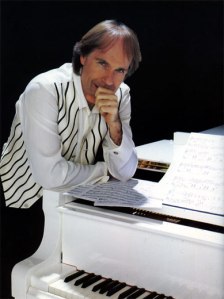
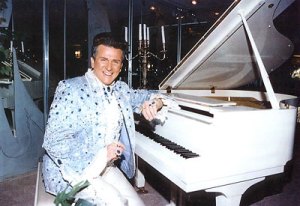







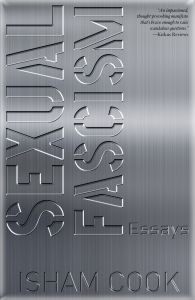
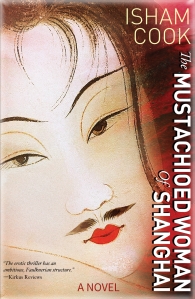








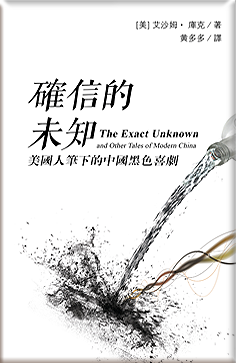
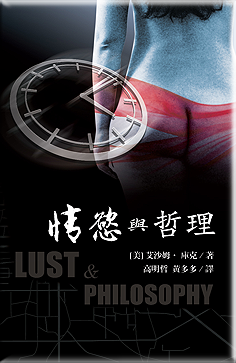

This is an extremely sensitive and knowledgeable piece!
When a nation loses its history and culture it loses its soul. Even though the west retained its culture and musical history—in time it will lose its soul as well. There is little interest in retaining the past or anything older than one year ago because commercially it is not profitable and thus dead or dying. Even when faced with FACTS the Chinese will do the opposite as in the case of the 1st grand pipe organ in China that was recently made in Beijing—whereas the builders of the instrument felt sad in building this massive organ inside a building that had the acustic qualities of a cardboard box.
It is true of the superfulous and artificial nature of the Chinese society as seen in the piano show on TV. Yet it is not fair for the vast public to be ridiculed for the general lack of taste for music in China because of the many historical, social, political and economic reasons. How about digging up more about what went wrong among the top of the system instead of ridiculing those below, like expecting a coffee connoisseur out of a waitor in a Chinese cafe, who is doing the job only for survival and may not well afford a cup of coffee? However, of course this piece is to be appreciated for the knowledge that I’m informed of.
Thank you for giving me the opportunity to clarify some issues that I knew in advance would ruffle some Chinese feathers, particularly as I resort to some necessary simplifications in order to make certain forceful points. 1) My thing about “white pianos” is not confined to China; America invented the white piano and bad taste in music, which is found today everywhere in the world. Clayderman, Yanni, Kenny G – all derive from the Liberace school. If I were trying to sing the praises of American music in contrast to Chinese, I would have carefully avoided the topic of white pianos. 2) There is indeed an historical explanation for the dearth of quality music in China: the Cultural Revolution and 1949 before that, which wiped out ALL music and culture for a couple generations, and China has slowly been picking up the pieces since then; it’s going to take another generation or two to make any substantial improvement. 3) While Chinese audiences generally cannot tell the difference between classical piano and New Age or Easy Listening piano, or between the Western opera and the musical, the caliber of Chinese professional classical musicians, by contrast, is very high, and at some point in the future I will devote an essay to that.
Having said this, I stand by my claims. I really don’t feel I was intentionally ridiculing the Chinese in my essay because I was simply describing my accurate feelings on the topic. I’ve had to put up with this music – noise pollution rather – for many years in China, and I maintain that Chinese commercial pop is invariably bad, and it’s bad primarily because the Chinese don’t realize how bad it is. It’s not going to get any better until they start to realize it. It takes outsiders like us to pop the insular bubble of Chinese pop music with the occasional (or better yet, unrelenting) ridicule. ONLY in China, of all countries in the world (except perhaps North Korea), is there general ignorance of the Beatles, for instance. Communist censorship isn’t an excuse; the Russians under the Soviets all knew the Beatles’ songs by heart, as did the Cubans when I visited there in 1989 (children, not just adults, were experts on it). Before a country can start to learn how to produce good music, it needs the touchstone of other cultures’ music to open its eyes. Cuba, by the way, would be a good place for China to start learning about good music. There is probably no country in the world with such a small population that has created such a vast repertoire of quality popular music.
________________________________
Oh, and I must add that I love Peking Opera, which unfortunately few Chinese seem to do, except for some old retired people.
Hi D,
I’m just curious about where did u get this classification: soft, loud and slow?
And what makes you think it a well-received standard in China since I don’t really know much about it as a Chinese.
P.s. It feels comfortable reading your writings.
Cici, these three categories (Soft, Loud, Slow) and the subcategory terms in my diagram are exactly the terms that Chinese people themselves have used when describing to me what kind of music they like or dislike; and I have heard these terms repeated over many years living in China. The only term they do not explicitly use is “white-piano” music, but white pianos are quite popular in China, as I noted, and the kind of music typically performed on them is also as I discussed in my essay, so I coined this term.
You baffle me at times David. WHY is the pianist just blurting out “white noise” to you? I would think that the so-called classical harpsichord players would have achieved a massive boner if they could have the pleasure of listening to Jacques Loussier’s versions in jazz or Jerry Lee Lewis doing some honky-tonkin with Balls on Fire. Somehow you equate every bit of contemporary music as trash—–remember that those classical monkeys were once considered contemporary too by the well established dudes banging on rocks and sticks….
Jack, would you kindly point out exactly where I equate “every bit of contemporary music” with trash or white noise? I say nothing remotely of the sort. So do me the favor of actually reading what I wrote. And I happen to like Jacques Loussier, whose music has nothing whatsoever to do with the kind of music I describe as “white piano” music.
It is not that you specifically point out things..perhaps it was your hatred for Kenny G and the like..and anyone playing a white piano and smiling…..but is that still not music and why is music written and performed in the first place if not for free expression of an art and of the artist?..The fact that the Chinese often use music as a “tool”….something to be utilized to achieve an end without any knowledge of its origin is true…I once walked through a mall in Xidan with Athena…there was a rap music song BLAIRING out with the singer screaming the words “AND YOU CAN SUCK MY D*CK” over and over again for like 30 minutes….it was funny..
Of course I support the free expression of music everywhere. The horrible thing that happened to music in China after 1949 and especially during the Cultural Revolution until its end and the “opening up” was that all music accept a few officially sanctioned revolutionary pieces (the “样板戏”) was outright forbidden. The only thing worse than that was Afghanistan under the Taliban, where all music was forbidden, period. On the other hand, I emphatically reject the idea that all music is equal in quality and it’s all just a matter of people’s personal preferences and tastes. With all due respect to the many people everywhere who hold this view, I do not. I believe that some music is simply better and longer-lasting than other music. There is a reason why the Beatles are popular around the world and most commercial pop quickly disappears: the Beatles are better. You don’t personally have to like the Beatles, but if you say they are no good or they are no better than Kenny G, then I say you’re wrong.
It is my belief that most so-called better composers and musical artists become “better” based solely on chance….they were somewhere in a space and time when the time was right for their becoming popular. One of the best vocal blues performances I have ever witnessed was in the Village in New York in the early 80’s in a small bar/nightclub—the woman was dressed in a short skirt and a bra….her voice made every hair on my body stand straight up……which the Beatles never have had “that”….BUT these kind of performers are everywhere…the ones that never “make it” because they don’t have the connections or have the opportunities others have had.. There is nothing phenomenal about the music the Beatles played—-but it DID speak to the people of the time in a special way. If Ed Sullivan did not have them on his TV show or if the Beatles played but did not appeal to the American audience they may have gone the route of the Turtles. What makes music and performers better than others? What is the criteria. Music in China really has NO historical basis other than local country-style music but no real history—-up until recently there probably have never been any schools of higher education in music—-and one can hardly call Peking Opera music of clanging bells and banging drums music…
Couldn’t disagree more. Do you really want to make such an extreme claim that there is no such thing as skill or talent or distinction in music or the arts and it all comes down to pure luck and chance? On that basis, all the paintings you have made so far are equal in quality (though you yourself have admitted having improved your technique over the years) and equal in quality to Da Vinci’s or Van Gogh’s or any high-priced contemporary paintings, and it’s only poor luck and circumstance that has presented the world from recognizing that and auctioning your work off at Sotheby’s for millions. As for Peking Opera, YOU may not like it but many people do including myself. And I’d like to see how many people you can find to agree with your comment that there is “nothing phenomenal about the music the Beatles played.” YOU personally may not like the Beatles but that’s quite separate from a general assessment of their music, which is that they continue to be the popular band in the world, and deservedly so.
You got me really wrong. What I said was that there are MILLIONS of truly talented musicians who “may” be producing works of music that are better than established “commercial” musicians. And if you can come up with ONE reason, one concrete reason why, musically, that the Beatles were a phenomenal musical entity then I’d be forced to think about it. I LIKE the Beatles AND I like Peking Opera too….I am just saying that if the MUSICAL element of Peking Opera is the extent of what Chinese music has been for the last so many hundreds of years then I think it is rather WEAK in comparison. AND sometimes it DOES mean that luck and chance are in play when it comes to being discovered and YOU know this….you must know this. I am not an artist nor would I claim to be but some artists once they achieve the “Sothebys Status” they could simply PISS all over a canvas, sign it and it could be worth millions. There have been early works by Picasso, just scribbling on papers, that have auctioned off for millions. It isn’t because they were made with skills above and beyond, it was simply because of his fame and recognition in later life. In the art world it is more about WHO you know and WHO can set up high-end gallery shows for you—–once that has happened then the road is set to go forward. Jackson Pollock would have NEVER been discovered had not the Guggenheims latched onto him and set up galleries for him in New York——by chance alone.
So you agree that artworks may vary in quality depending on the skill, technique and talent of the artist. Okay, good. Now, would you also agree that you may not be able to appreciate the level of skill or technique of a particular artwork because you’re not familiar enough with it or its genre? And that other people may understand and appreciate it while you don’t? And while you fail to understand what’s good about it, many others do understand? And therefore the burden is on you to understand it and not on others or the artist himself to explain it to you?
By far the two most popular Western opera composers are Verdi and Puccini. No one else even comes close (in terms of the number of performance of their works around the world). I’m a big opera fan and know a lot about opera but I personally don’t like these two composers; I prefer Wagner and others. Now, just because I don’t happen to like Verdi and Puccini, it does not follow that they are not good composers or that I can’t for the life of me figure out why anyone would want to listen to them, or that they got extremely lucky in getting noticed and that’s the only reason they’re popular. No. They’re popular because they’re very good. I am able to separate my personal dislike of their music from the universal fact that they’re music, objectively speaking, is first-rate. I can hear how good it is, I just don’t get into late Romantic Italian opera; nevertheless, I don’t like the style. Now, it’s similar with the Beatles. There are people who don’t like the Beatles. But anyone with any understanding of Anglo-American popular music of the 1960s recognizes how good they are and that there are very few acts of the time who could produce such consistently good music, memorable tunes that people love. It’s not easy to write a great song; try doing it a hundred times (not to mention creating a wholly new sound that revolutionized rock music). The only explanation why someone could not see any worth in the Beatles is 1) complete unfamiliarity with their music and good music in general (typical of the Chinese today, lacking the reference points of Western cultural history, as I discuss in my blog essay), or 2) inability to appreciate any good music due to one’s lacking a “musical ear.” If the latter is the case with you, it’s nothing to be ashamed of; many people don’t much listen to music, just as many lack an “artistic eye” (obviously not the case with you) or don’t have the patience to get 10 pages into a novel, or can’t sit through a movie more than two years old, etc.
I do agree that many artists, writers and musicians need a lot of luck to get noticed, but they also have to be very good, otherwise they’re quickly dropped and forgotten. There are also surely many, many very talented and accomplished artists who never got noticed because of a combination of bad luck and inability to market themselves, and tragically faded away once and for all. However, in general, those who are really, really good tend to finally get noticed and the cream rises to the top. In the case of the Beatles and many musical acts, they got noticed because they were constantly performing and built up a large audience long before their fame took off, unlike the situation of many artists and writers working in lonely obscurity.
________________________________
Much of the replies here are stereotypical and shallow. You keep on repeating about Peking Opera. The so-called Peking Opera is one of the last and newest musical forms in traditional Chinese history, it arose in the late 18th century, which is newer than Baroque. Other forms of Chinese Operatic Play including the Kunqu are at least one and a half centuries older than Peking Opera. Yet, the whole idea of the Operatic play is hardly “classical” or “old” in terms of Chinese music history.
Any product of the late Imperial Era (Ming, Qing dynasties) aren’t nearly as valued by traditionally educated Chinese as the Early Dynasties nor the pre-Qin era culture.
As for your claim of the so-called lost of culture in China as implied by you as a result of Communist government is another silly claim. The common Chinese are as uneducated and unlearn about music as they have always been for tens of centuries. However, sophisticated Music has always been a pillar of traditional Chinese culture since long before Zhou Kingdom. But this sophisticated music, you see, was a culture of the ruling class. It was inherited by the Confucius literati class. An interesting piece of info for you: Kunqu itself arose from the literati class during the Mongol occupation and Ming dynasty, under the circumstances that highly learned and educated people who are unable to fulfill their traditional roles as scholar-governors because of limitations of the governing systems in Yuan and Ming dynasty, spend their energy into creativity in art forms and private lives.
As for today’s so-called lack of culture, it is absurd to blame it on Culture Revolution. The reason why people blame Mao and Cultural Revolution is because the victims who lived thru it prospered enough in today’s world to have the power to hold the anchor. Who are these people? They are people like 袁腾飞, people like 陈丹青. These people believe that the party and country owe it to them. These people all have elite back ground to begin with. But they were indiscriminately sacked by Mao during the cultural revolution. That’s why they hate it.
But if you actually know China, you will know that Mao functioned exactly as what the political philosophers in the Warring-State Era theorized the ideal Emperor should function.
Thanks for the useful historical points. It is a fact, however, that the Communist regime (rather than just the Cultural Revolution), I mean since 1949, had a devastating effect on Chinese music and the arts, essentially wiping it out from public memory for two generations. They’re still picking up the pieces now.
As for appreciation of music it is the only thing I excelled at when I was young. I can sing/hum along to some of the most complex classical music pieces note for note……the ENTIRE piece…and ALL of the parts of the orchestra. So I think I know a little about music as if I came from a family with money I would have attended a university on numerous scholarships as I wanted to be a conductor when I was young. So I think I have the ear part down. I do however do not have a huge appreciation for candy-ass pop music nor do I appreciate WHY people get so gaga over it other than being shallow human beings with nothing else to do worthwhile. I KNOW music—-I know what is complex and what is just bubblegum crap. Much of pop music is born in an era where the fans believe that the lyrics speak to them personally or what is happening in their twisted lives and stays alive for generations or at least until everyone who knew of such people have all died off . BY then others have sprung up to take their place with lyrics and music that is virtually the same but sang by the pop singer or group of the day.
I don’t believe that one must be intimately familiar with works of art in order to enjoy them for what they are nor does it interest me to be such a person. I do recognize that you are very knowledgable and familiar with many muscial works and genres as that is one of your interests in life and that you have MORE of an appreciation for music in general than I do and most people on the planet. We all have our likes and dislikes in music and music appreciation is hugely subjective no matter who the person is and how familiar they are it. Surely some people have become more famous than others but in name ONLY……the Chinese pianist LanLan…..ask 100 people to name a famous piece that LanLan has written and performed….most would give you deer in the headlights look because even though they are world-class performers AND are extremely talented, they are not really known for creating anything of substance themselves—but they are famous—and thus they are good.
There are different people in the world….some would be at a classical music soiree wearing powdered wigs—one eye focused on the stage but the other focused in like an eagle on the breasts in the front row with a napkin coving a huge boner–whereas another guy may be at a honky tonk jamming with Jerry Lee whilst giving the waitress a good—but less refined–banging under the table.
All your points have some validity but very few people would agree with your equating the Beatles with bubblegum pop. There is a huge difference in quality among all pop music, from truly cheap commercial pop that disappears after initial airplay to the best quality pop which quickly gains “classic” status. Quality pop also tends to be written by the singer-songwriters themselves. Thus we have the Beatles, the Stones, Dylan, and even Michael Jackson, Elton John, and other more “soft pop/rock” acts. Cheap, mass-produced, assemblyline commerial pop, on the other hand, in which one person is employed to write the words, another the melody, and another person to sing it, is simply not in the same category.
Sorry for being an angry white man…..I guess that living in America and being a “man of a certain age” here comes out in my fingertips—-so I will try to refrain from commenting from now on…
It’s okay, Jack. I welcome and encourage controversy with these posts.
Never connected “pianoforte” meant “soft loud” but then again didn’t realise “malaria” meant “bad air” until way after being struck dowm with it..duh!….I do feel Jacques Loussier emasculates the original but maybe that’s the attraction..nice elevator music
Just because music is popular and lasting does not mean it is necessarily “good” music (or that the musicians were “good”). Yes, quality *must* be a part of it, but it can by no means be the only part. It must speak to its listeners, its listeners must be trans-generational, it must be published often and in many places, and it must be lucky.
Do you see anything different about the musicians produced in any East-Asian country? Regardless of the musical awareness of the people (which has more to do with market penetration), what do the local musicians and musical histories of the places have in common?
Frankly, in theater, East Asia has a strong tradition of conforming to the masters and removing the actor’s personality–being creative was always a strict no-no—while Western theater has a strong tradition of just the opposite. This changes tradition as you travel further South, but in China (and in Korea and Japan as well) there remains a strong tradition of repeating what people *know* and keeping it as regimented to what they know as possible.
I’d venture a guess that music may be slightly different, but I do not imagine it’s too far off.
Valid comments, but my point is that when it comes to Western music (whether classical, pop or rock), the individual personality and taste in musicality ARE essential. If you consider Chinese pop on its own terms, it’s doing quite well as an industry and serves its audiences to their expectations.
Reblogged this on iLook China.